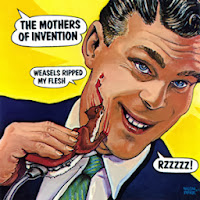The secret of this motion lay in the flexibility of voskin -- the very special stuff with which the Inventor had replaced live bones and live flesh. The two pseudopodia of the original voskiddy seemed alive not because it moved them (a mechanized "strollie" or zhivulya are after all no rarity, they breed like rabbits on sidewalks around Easter or Chiristmas) but rather because the material itself, animated by a so-called galvanobiotic current, remained active all the time -- rippling, tensing, slackening as if organically alive or even conscious, a double ripple grading into a triple dapple with the smoothness of reflections in water. It walked without jerking -- this was the wonder of it.Anyway, at first I thought this was going to be a rather straightforward and dull love story... but it changes directions again and again, and I found myself quite haunted by it. I can't say I'm sure how I feel about it, but I know I can't stop thinking about it. The characters and scenes won't go away, and I'm sure that Dreyer with a pistol was in my dreams last night.
And of course, there's a dash of chess and butterflies.





